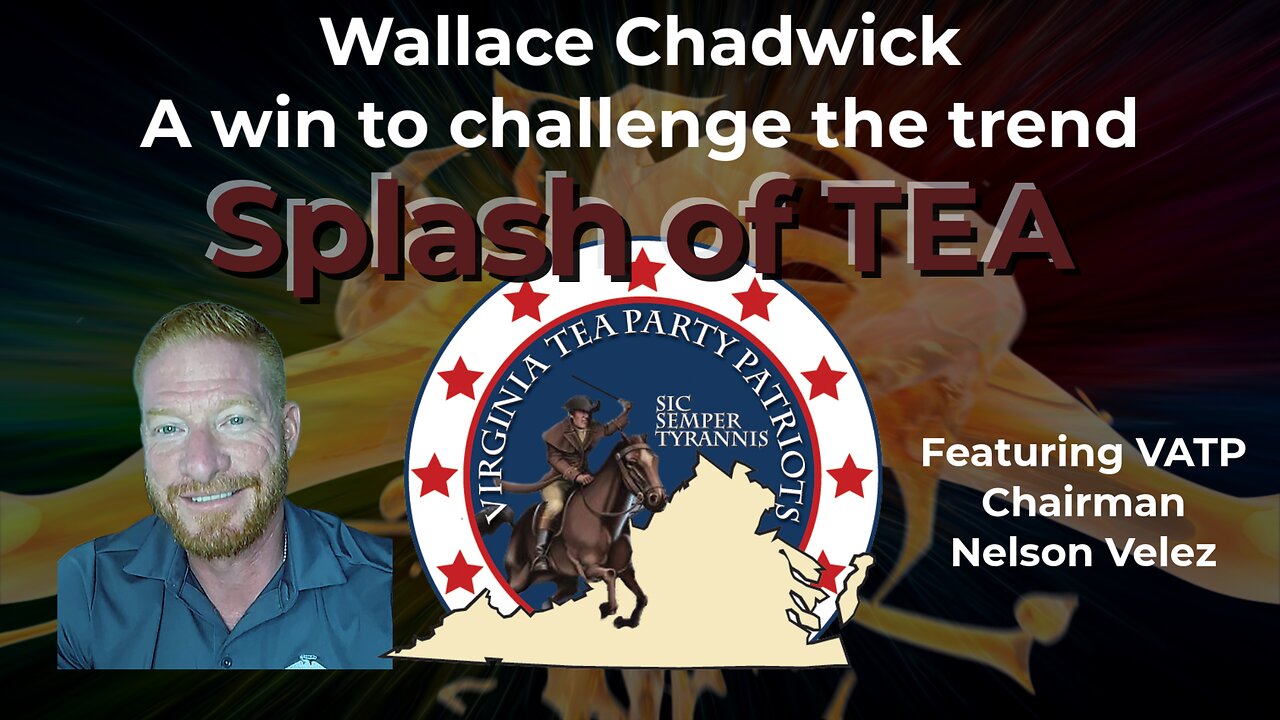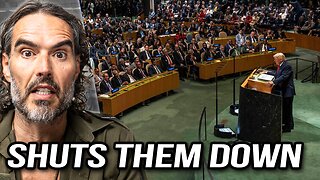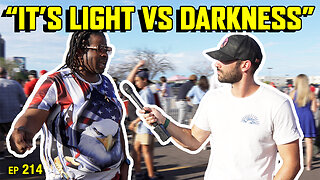Premium Only Content

Wallace Chadwick - A win to challenge the trend
In this podcast episode recorded on September 19, 2025—the first day of early voting in Virginia—Nelson Velez, Chairman of the Virginia Tea Party, interviews Wallace Chadwick III, the Republican nominee for Chesapeake Sheriff. Velez sets the stage by reflecting on the rapid pace of political changes in America, citing positive shifts like conservative victories in November 2024 and tragic events such as the assassination of conservative activist Charlie Kirk on September 10, 2025, at Utah Valley University. He emphasizes the Tea Party's focus on constitutional freedoms and the sheriff's role as the ultimate defender of citizens' rights amid rising lawlessness, immigration challenges, and a perceived mass exodus from the Democratic Party. Chadwick, a U.S. Marine Corps veteran with 25 years in law enforcement, is introduced as a grassroots candidate addressing local concerns with statewide implications.
Chadwick explains his decision to challenge incumbent Sheriff Dave Rosado, driven by reports of low morale, suppressed free speech among deputies, and leadership distrust within the office. He highlights issues like fear of retribution for political opinions, promotions based on loyalty rather than merit, and an autocratic style that politicized non-political roles. Velez and Chadwick discuss Rosado's alleged reluctance to cooperate with ICE, ranking him among the top five least cooperative sheriffs nationwide according to a think tank survey, which raised alarms about community safety and criminal importation. Chadwick positions himself as a "servant leader" committed to depoliticizing the office, upholding constitutional principles, and fostering an environment where deputies can serve without ideological interference.
The conversation turns to the June 17, 2025, Republican primary, where Chadwick achieved a landslide victory by nearly 20 points despite being outfundraised 5-to-1 and lacking incumbency advantages. Rosado, who had endorsements from figures like Governor Glenn Youngkin and former President Donald Trump, refused to concede, breaching a party pledge to support the winner. Instead, he launched a write-in campaign, aligning with Democratic leaders such as State Senator Louise Lucas and Delegate Cliff Hayes, and accused Chadwick of racism—a claim dismissed given Chadwick's diverse background. Evidence like Rosado's signs in Democratic areas suggests infiltration tactics, drawing parallels to similar party switches in Chesapeake's Commonwealth Attorney race.
Velez and Chadwick frame the race as a case study in grassroots triumph over establishment machines, urging voter engagement to combat apathy and deception. Chadwick reports bipartisan support, including from Democratic State Senator Lionell Spruill Sr., and expresses confidence in winning the November 4, 2025, general election through authentic messaging and door-to-door outreach. The discussion concludes optimistically, viewing Chadwick's persistence as a model for conservative victories amid national turbulence, while honoring Kirk's legacy as a catalyst for amplified voices against left-wing extremism.
-
 25:31
25:31
Virginia Tea Party
2 months agoSummer Summer Segment - Mark Mix
481 -
 17:23
17:23
Russell Brand
1 day agoThey couldn't handle this...
111K299 -
 18:18
18:18
DeVory Darkins
20 hours ago $33.84 earnedPortland gets NIGHTMARE NEWS as Trump orders Troops to crush violent rioters
49.2K302 -
 LIVE
LIVE
Ouhel
4 hours agoSUNDAY | Active Matter | Exploring the postapocalyptic | O'HELL LIVE
77 watching -
 LIVE
LIVE
Astral Doge Plays!
5 hours agoFinal Fantasy IX ~LIVE!~ Iifa Tree Visitation Hours
30 watching -
![[Classic] Pac-Man World Re-Pac 1 and 2 👻 🟡 🟡 🟡 Relaxing on Sunday](https://1a-1791.com/video/fwe2/7a/s8/1/W/5/8/l/W58lz.0kob-small-Classic-Pac-Man-World-Re-Pa.jpg) LIVE
LIVE
J0hnThunder
4 hours ago[Classic] Pac-Man World Re-Pac 1 and 2 👻 🟡 🟡 🟡 Relaxing on Sunday
120 watching -
 LIVE
LIVE
Lofi Girl
2 years agoSynthwave Radio 🌌 - beats to chill/game to
183 watching -
 4:23:27
4:23:27
TonYGaMinG
7 hours ago⚔ Trying out this NEW game called " SWORN " ⚔
43.5K4 -
 29:27
29:27
James Klüg
1 day agoAmericans Remembering Charlie Kirk
41.9K8 -
 9:36:11
9:36:11
GoA_Malgus
13 hours ago $1.05 earnedGoA Malgus - The Legend Has Returned!!! - Live domination on Black Ops 6
29.5K2